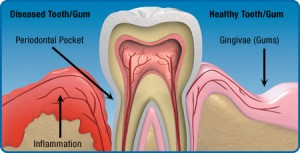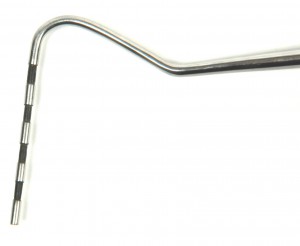Dental Hygiene / Periodontal Health
Oral Hygiene Benefits
Daily cleaning of your teeth, gums and tongue, combined with annual check-ups, has a host of health benefits. Good oral hygiene wards off harmful bacteria and microbes that may cause tooth decay, bleeding gums, and oral infections. Proper oral hygiene is also important in helping you stay healthy, especially if you have risk factors such as diabetes and heart problems. Other than keeping associated diseases at bay, oral hygiene elevates a person’s sense of self-esteem. This is especially true for teenagers and adults who frequently interact with others at work or in social situations. Maintaining proper oral hygiene ensures that embarrassing conditions, such as plaque, tartar and more commonly, bad breath are not experienced. Keeping optimal oral hygiene lowers the need to treat dental problems that could otherwise be inexpensively prevented.
What is Periodontal (Gum) Disease?
Periodontal (gum) disease is an infection of the tissues that hold your teeth in place and affects approximately 50% of the adult population. It’s typically caused by poor brushing and flossing habits that allow plaque—a sticky film of bacteria—to build up on the teeth and harden. In advanced stages, periodontal disease can lead to sore, bleeding gums; painful chewing problems; and even tooth loss.
Periodontal Examination and Probing
A periodontal examination is used to assess the health of your gums and teeth. It can help Dr. Day diagnose the gum diseases gingivitis and periodontitis. It also can reveal receding gums, exposed roots, tooth grinding (bruxism) and other problems.
 A Periodontal Probe is an instrument used to measure the depth of the sulcus or free space around the tooth. The sulcus is like a collar around the tooth and in a normal healthy mouth the depth of the sulcus is usually 1 to 3 millimeters deep.
A Periodontal Probe is an instrument used to measure the depth of the sulcus or free space around the tooth. The sulcus is like a collar around the tooth and in a normal healthy mouth the depth of the sulcus is usually 1 to 3 millimeters deep.
